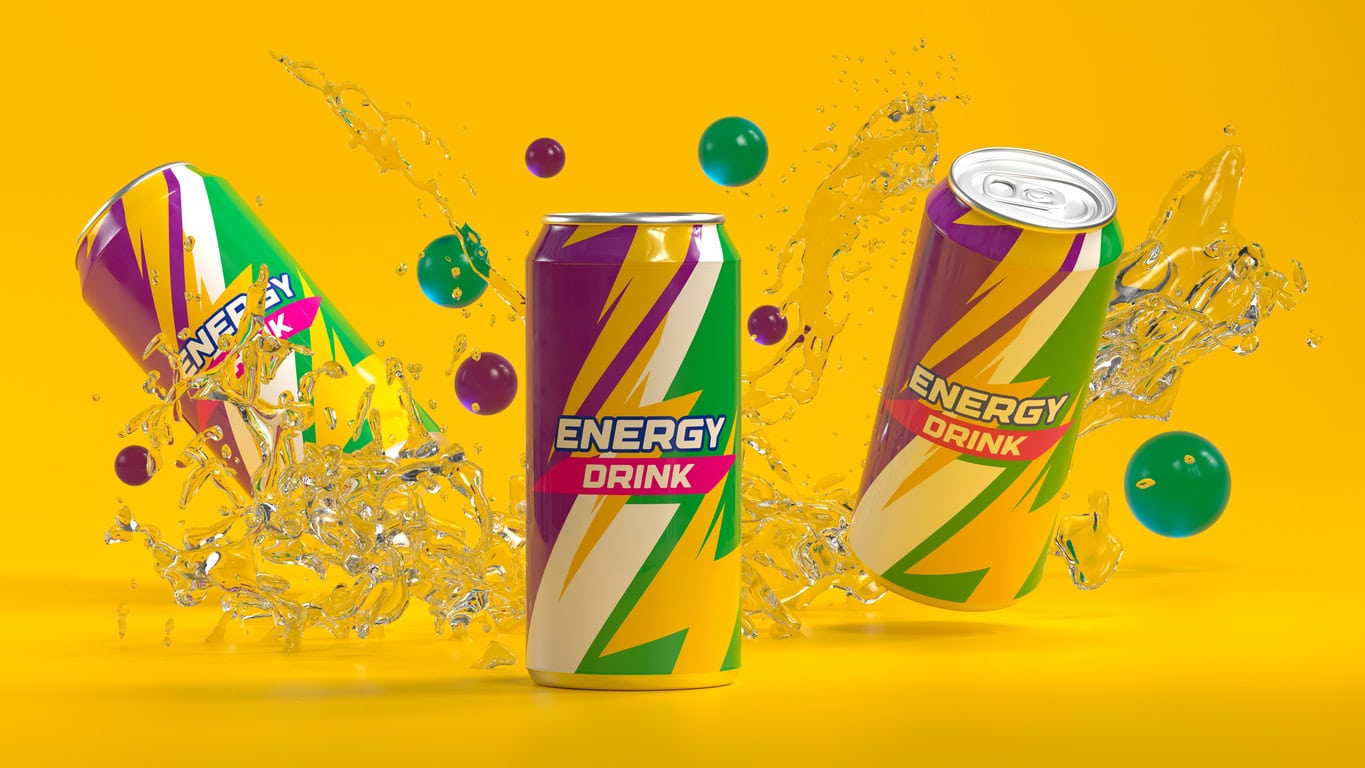Energy drinks have become increasingly popular among teenagers. In fact, some marketing campaigns target teens. These drinks are often advertised as a quick way to boost energy, enhance focus and improve athletic performance. However, these highly caffeinated beverages pose significant health risks, particularly for adolescents whose brains and bodies are still developing. Energy drinks are harmful, and especially harmful for teens.
How caffeine affects the developing brain.
In addition to other stimulants such as Guarana, Taurine and Ginseng, the milligrams of caffeine in energy drinks is about double of a cup of coffee. The adolescent brain is highly sensitive to caffeine, which can interfere with normal brain development and function.
During adolescence, the prefrontal cortex undergoes rapid growth and reorganization. This is the part of the brain responsible for decision-making, impulse control and long-term planning. Caffeine can have immediate reactions with a teen brain, more importantly, regular use can lead to a hurtful disruption of mental and physical health.
The many harmful affects of energy drinks:
They disrupt sleep patterns. Studies show that energy drinks can interfere with a teen’s ability to fall and stay asleep, leading to chronic sleep deprivation. Poor sleep negatively affects memory, concentration and emotional regulation. We all know what its like to be around a teen with lack of sleep.
Quality sleep is essential for the proper brain growth. It allows the brain to strengthen neural connections. Caffeine blocks adenosine, the chemical that signals the body to feel tired. Even moderate amounts can delay the onset of sleep, shorten total sleep time, and reduce the restorative stages of sleep. Over time, this chronic sleep deprivation will interfere with memory, attention and problem-solving skills.
They increase anxiety and irritability. Teens are especially sensitive to caffeine because their brains and bodies are still developing. Caffeine intake increases the stimulation of stress hormones, thus leading to high anxiety and mood swings; of which is already a common concern for teens.
They alter brain development. The prefrontal cortex, responsible for decision-making and impulse control, is still maturing. Caffeine can interfere with its proper development; potentially leading to chronic impulsivity and poor judgment.
They affect dopamine levels: Energy drinks impact the brain’s reward system. This may cause an increased risk of dependency on caffeine and other stimulants. Long-term studies have found that there is an association with teens who frequently consume energy drinks; that are more likely later on to report using alcohol, smoking or misusing prescription stimulants.
The effects of large amounts of caffeine on the developing brain are even more dramatic if alcohol is added. This study by the NIH, raises concerns that the hippocampus region of the brain could be permanently impaired when both substances are combined and consumed in large amounts.
The caffeine is a diuretic. Caffeine acts as a mild diuretic by increasing blood flow through the kidneys and reducing the reabsorption of sodium and water, therefore producing more urine than usual. Teenagers are particularly vulnerable to dehydration because they have higher fluid needs due to growth, physical activity, and higher metabolic rates.
The caffeine creates an electrolyte imbalance. Diuretics don’t only remove water, they also increase the excretion of important minerals such as sodium, potassium and magnesium. Electrolytes are essential for proper nerve function, muscle contraction, and heart rhythm. In teens, an imbalance of electrolytes can lead to muscle cramps, irregular heartbeat, and in severe cases, cardiac complications. Teens who combine diuretics with intense physical activity or poor hydration are at particular risk.
The caffeine interferes with growth development. During adolescence, organs such as the kidneys, heart and brain are still developing. Caffeine can strain the kidneys, alter blood pressure, and affect overall metabolic balance. Over time, this stress may interfere with healthy growth and increase the risk of long-term health problems.
The sugar content is high. Many energy drinks contain excessive amounts of sugar. Energy drink will carry between 27 to 63 grams of sugar. The American Academy of Pediatrics states that sugar is already about 17% of the average child’s diet. Energy drinks will then greatly increase that percentage.
Not only will regular sugar intake create cavities, it changes the brain reward system, it impacts learning, and greatly affects mood and emotional regulation.
What sugar does to a young brain:
It overstimulates the brain reward systems.
Sugar stimulates the brain’s reward system by triggering the release of dopamine; the “feel-good” neurotransmitter. In the short term, this can make teens feel happy and energetic. However, repeated spikes in dopamine from high-sugar foods can lead to a desensitization, meaning the brain needs more sugar to achieve the same pleasurable effect. This can contribute to cravings, overeating, and potentially unhealthy eating habits that persist into adulthood.
It has an impact on learning and memory.
Excess sugar interferes with the hippocampus; the brain’s region responsible for forming new memories and spatial navigation. Teenagers who consume large amounts of sugar may experience difficulties concentrating, remembering information, processing complex tasks, affecting academic and physical success.
It affects mood and emotional regulation.
Sugar can create rapid fluctuations in blood glucose levels, leading to energy “spikes” followed by crashes. These swings can result in moodiness, irritability, fatigue and difficulty focusing. Over time, chronic high sugar intake has been linked to increased risk of high anxiety and depression, particularly in adolescents whose emotional regulation systems are still maturing.
Any which way you look at it, energy drinks are harmful; especially for teens. As parents, let’s set our teens up for success and educate them on the harmful affects as well as be good role models ourselves by not consuming energy drinks.
At Therapeutic Educational Consulting, we guide, support and recommend placement options for treatment centers, nature-based therapy, therapeutic boarding schools, struggling-to-launch programs and alternative education for adolescents and young adults.
Schedule a no-cost discovery call with Rae Guyer, your therapeutic consultant to discuss options.
© Therapeutic Educational Consulting
Photo credit, narvo vexar






